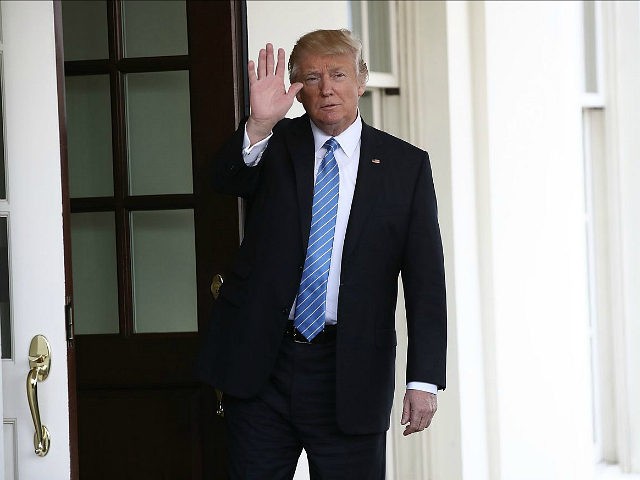U.S. President Donald Trump’s administration is contemplating forming a military coalition with several Arab allies to combat their mutual enemy, state sponsor of terrorism Iran, reports the Wall Street Journal (WSJ).
Citing five nations involved in the discussions, WSJ notes that the anti-Iran coalition would bring together Saudi Arabia, the United Arab Emirates (UAE), Israel, Egypt, and Jordan, noting that the latter two countries already have long-standing peace treaties with Israel.
Other Arab nations may also join the alliance, which is expected to “share intelligence with Israel to help counter their mutual foe, Iran,” the Journal learned from various unnamed Middle Eastern officials.
“They’ve been asking diplomatic missions in Washington if we’d be willing to join this force that has an Israeli component,” one unnamed Arab diplomat told WSJ. “Israel’s role would likely be intelligence sharing, not training or boots on the ground. They’d provide intelligence and targets. That’s what the Israelis are good at.”
The Arab nations involved in the ongoing discussions currently have no mutual-defense agreements, points out the Journal.
WSJ reports:
For the Arab countries involved, the alliance would have a NATO-style mutual-defense component under which an attack on one member would be treated as an attack on all, though details are still being worked out, the officials said.
The U.S. would offer military and intelligence support to the alliance, beyond the kind of limited backing it has been providing to a Saudi-led coalition fighting Iran-backed Houthi rebels in Yemen, the officials said. But neither the U.S. nor Israel would be part of the mutual-defense pact.
The Journal acknowledges that neither the White House nor Israel has responded to requests for comment.
In exchange for cooperation with Israel, Saudi Arabia and the UAE are demanding that the U.S. overturn the law that allows families of victims of the September 11, 2001, attacks to sue their governments.
The Trump administration has reportedly indicated it would lobby Congress to change the controversial legislation, which passed with overwhelming bipartisan support despite former President Barack Obama’s veto.
However, the GOP-led Congress expressed buyer’s remorse soon after enacting the law and suggested they are open to rewriting the bill.
Arab countries have also requested that Israel ceases settlements in the West Bank and East Jerusalem in exchange for their participation in the alliance.
Moreover, the Arab nations reportedly said that their cooperation would be contingent on President Trump dropping his pledge to move the U.S. embassy from Tel Aviv to Jerusalem, a controversial move that would recognize the ancient city as Israel’s capital.
If it comes together, the alliance will corroborate the old maxim that adversity makes strange bedfellows by bringing together Sunni countries Saudi Arabia and the United Arab Emirates (UAE) with their avowed enemy Israel.
In March 2016, the Saudi daily Al-Jazirah published an article declaring that Iran had replaced Israel as the number one enemy of the Gulf country.
Moreover, in May of last year, Israel’s Prime Minister Benjamin Netanyahu said, “Israel is ready to participate with Egypt and other Arab states,” including the same countries President Trump is trying to bring together to combat Iran, “in advancing both the diplomatic process and stability in the region.”
While the Saudi Kingdom and Israel consider Iran their biggest threat, the U.S. has designated the Islamic Republic as the world’s number one state sponsor of terrorism.
In a letter sent to the United Nations late last year, 11 Arab countries in the Middle East and North Africa determined Iran to be a major threat — a state sponsor of “terrorism” that is “funding and arming militias that destabilize our region.”
The letter was authored by representatives of the UAE and signed by Saudi Arabia, Egypt, Jordan, Sudan, Morocco, Bahrain, Kuwait, Oman, Qatar, and Yemen.

COMMENTS
Please let us know if you're having issues with commenting.